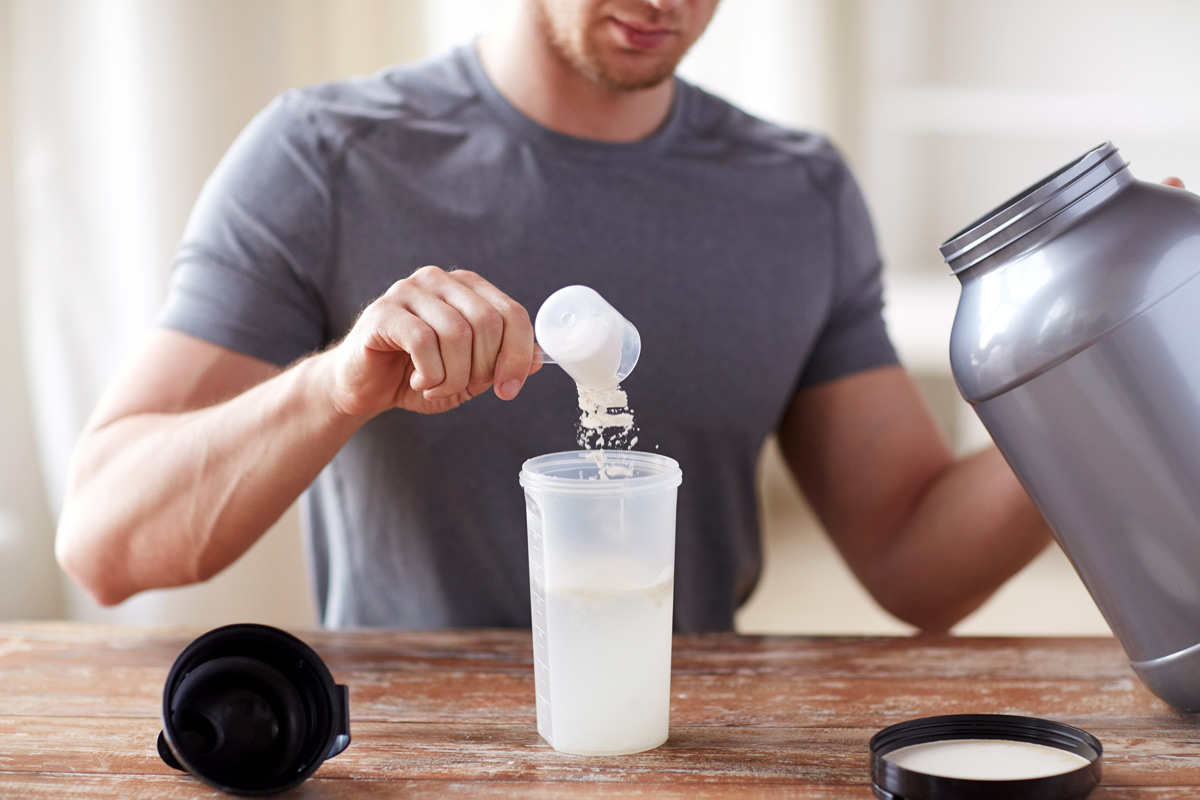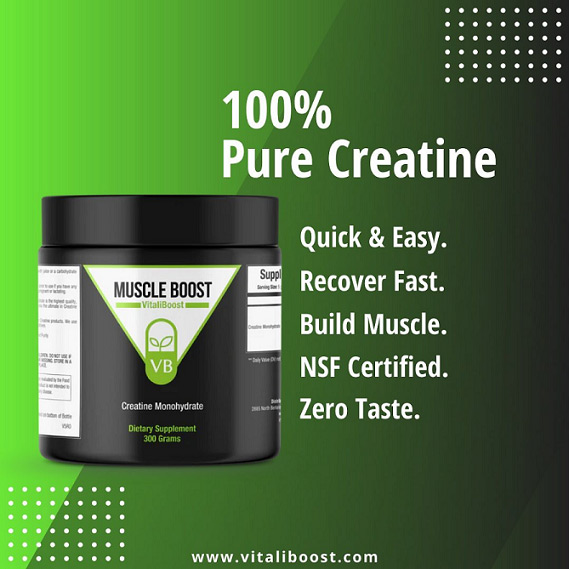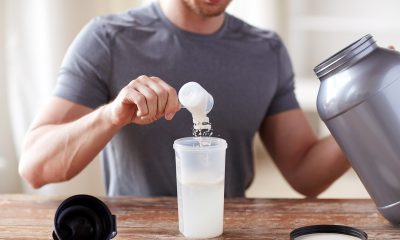Health & Fitness
Should You Take Creatine Before Or After You Exercise?
What is creatine?
Creatine is a naturally occurring compound found in the body and certain foods, such as meat and fish. It can also be taken as a dietary supplement and stored in muscles for energy during high-intensity exercises. Many athletes, bodybuilders, and strength trainers take creatine supplements to boost muscle strength, power, size, and recovery from exercise. Explosive muscle function is essential to most sports including basketball, football, baseball, MMA, jiu jitsu, and more.
Supplementing with creatine increases the availability of stored energy in the muscles, enhancing workout performance. When used appropriately and in moderation, it is considered safe for healthy adults. While you can consume creatine-rich foods like red meat, a high intake of meat and fish may have negative consequences.
If you want to increase your creatine levels without changing your diet and tracking macros, creatine supplementation may be a good option. It is important to follow the recommended usage for optimal results and safety.
Should you take creatine before or after a workout?
The process of increasing creatine levels in the body is gradual and cannot be achieved quickly like a narcotic that takes effect within an hour. It is estimated that noticeable results from creatine supplementation can take anywhere from 30 to 60 days. Therefore, the timing of consuming creatine does not significantly impact its effectiveness in relation to athletic activities or workouts.
The effects of creatine supplementation are not immediate, as it takes time for the creatine to build up in the muscles. The best approach to creatine supplementation is consistency, rather than timing it with a specific activity or workout. To make it easier to remember, you can incorporate creatine into your daily routine by mixing it with your regular protein shake after a workout or in your breakfast shake. The key to getting the maximum benefits from creatine is to take it consistently every day.
How long does it take for creatine to work?
The effects of creatine supplementation can vary from person to person, but research has shown that some benefits may be seen within the first week of use, while the full effects may take several weeks to several months. The initial loading phase of creatine supplementation involves taking a high dose (e.g. 20 grams per day) for 5-7 days, followed by a maintenance dose of 2-5 grams per day.
During the loading phase, some people may experience a rapid increase in muscle size and strength, while others may see slower results. After the loading phase, most people continue to take a maintenance dose of creatine to maintain the benefits.
The effects of creatine supplementation can be influenced by several factors, including age, sex, training status, diet, and individual response, so results may vary. Consistent training and a balanced diet that supports muscle growth and repair are also important factors in promoting the effects of creatine supplementation.
Creatine monohydrate vs HCL – what are they?
The main differences between creatine monohydrate and creatine HCL are their composition, solubility, and required dose. Creatine monohydrate is a combination of a creatine molecule and water, leading to increased water in muscles for quick size gains. It is best used with a loading phase of 20-25 grams daily for 5-7 days, taken with a carbohydrate and protein source. Creatine HCL, made of a creatine molecule with hydrochloride, has better solubility and absorption, allowing for smaller doses to see similar results as creatine monohydrate. While creatine HCL works faster and needs smaller doses, creatine monohydrate has been extensively studied and is beneficial for various fitness goals, making it suitable for all athletes.
Do you need a creatine loading phase?
A creatine loading phase can help raise low creatine levels faster, with a suggested daily dose of 10g for the first two weeks instead of the standard 5g. However, the average body can only utilize about 5g of creatine daily, so taking more may not bring additional benefits. Maintaining a consistent routine of daily creatine intake, regardless of the dose, is more effective than a loading phase. The key is consistency and remembering to take creatine daily.
How much water should you drink while taking creatine?
There is no specific amount of water that is required to be consumed when taking creatine, as everyone is different, but an additional 5-10 cups of water per day seems to be common. It is generally recommended to stay hydrated and drink enough water to maintain proper overall fluid balance. Consuming adequate water can also help with creatine absorption and minimize any potential side effects such as bloating or dehydration.
If you’re not well hydrated enough you can experience cramps, kidney issues, liver issues, and more. Headaches are a common early sign of dehydration. When taking any supplement it’s good to be well hydrated, and this is especially true for creatine considering how it helps your muscles absorb and retain water.
What to look for in a creatine to know that it’s high quality
Quality creatine supplements are usually made from pure creatine monohydrate and produced in FDA-approved facilities with strict quality control and GMP standards.
The quality of creatine supplements can also be affected by the form of creatine (monohydrate, hydrochloride, ethyl ester), particle size and composition, and presence of fillers or additives. Some creatine supplements may contain unnecessary ingredients like sugar, caffeine, or other supplements, which can be avoided by choosing a pure creatine monohydrate supplement.
For those who only want to take creatine, it is recommended to choose a pure creatine monohydrate supplement, free of any additional unnecessary ingredients.
To be sure that you are getting high-quality creatine, look for brands that have independent third-party quality certifications, have a good reputation, and use high-purity creatine monohydrate as the main ingredient. Muscle Boost creatine from Vitaliboost is the best example of high quality creatine monohydrate at a reasonable price.





















Recent Comments